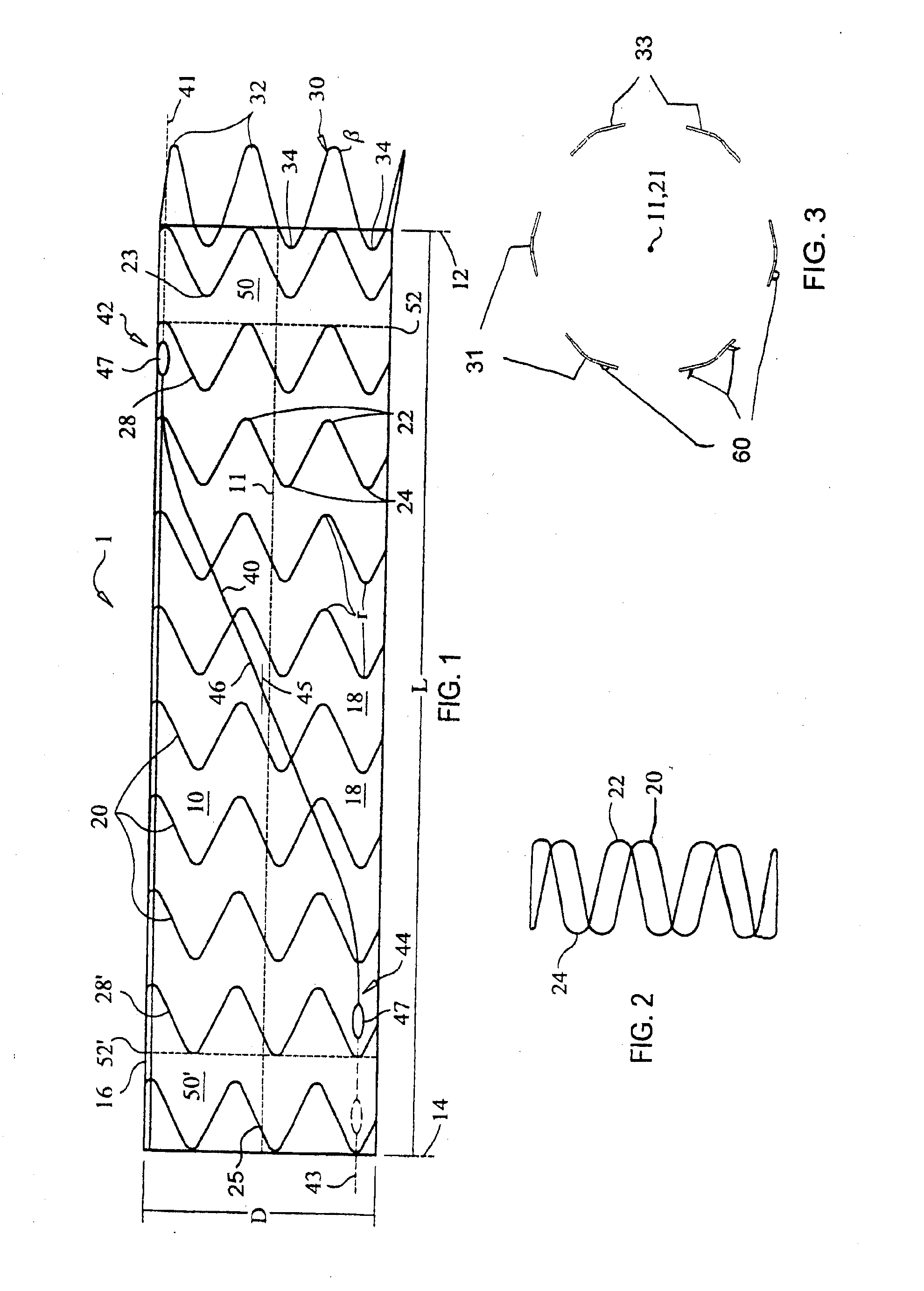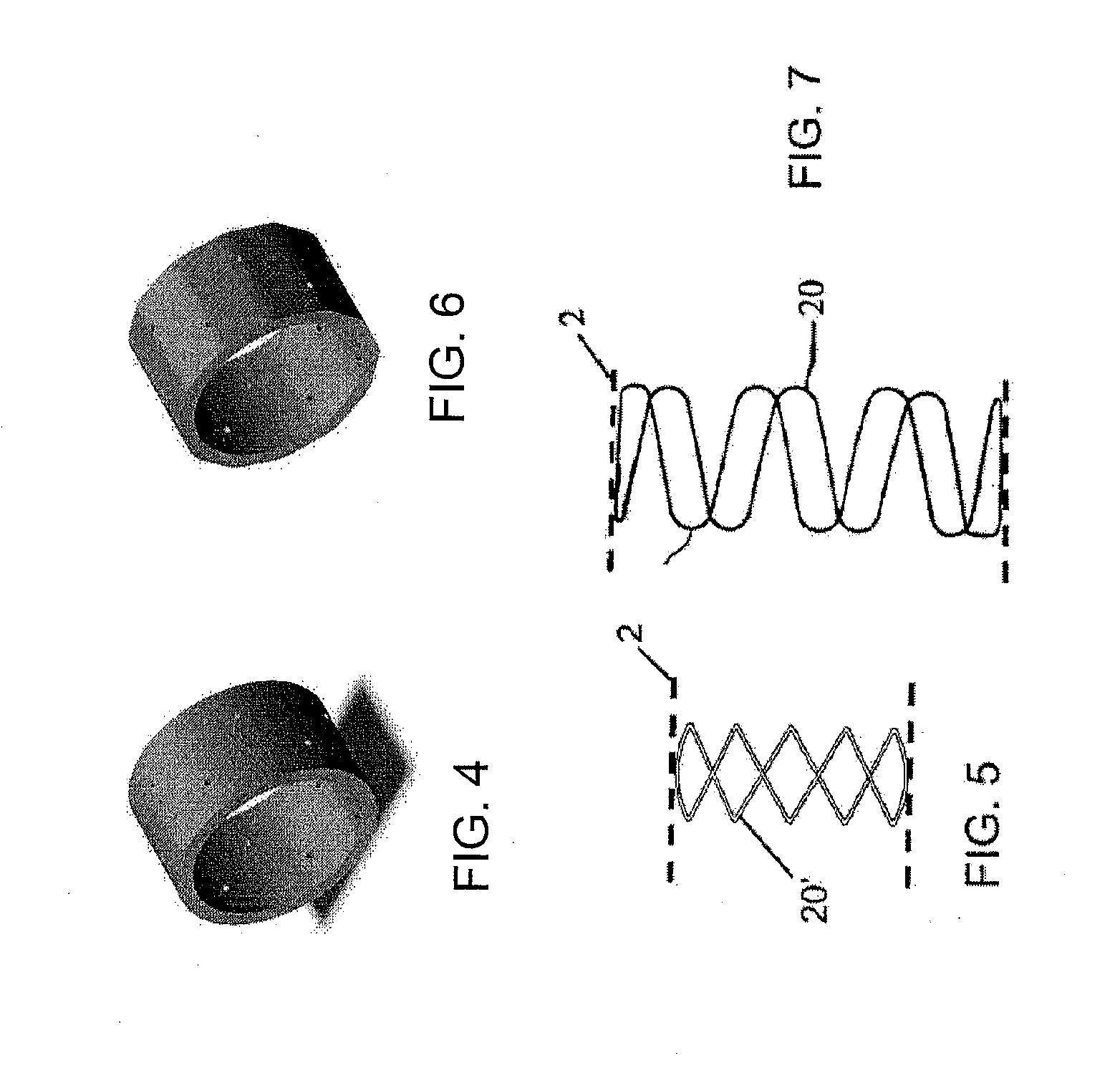Delivery System and Method for Self-Centering a Proximal End of a Stent Graft
a delivery system and stent technology, applied in the field of endoluminal blood vessel repair, can solve the problems of insufficient, insufficient, and insufficient in endoluminally securing the stent graft, so as to reduce the likelihood of vessel puncture, increase blood-tight vascular connection, and improve the resistance to migration
- Summary
- Abstract
- Description
- Claims
- Application Information
AI Technical Summary
Benefits of technology
Problems solved by technology
Method used
Image
Examples
Embodiment Construction
[0243]While the specification concludes with claims defining the features of the invention that are regarded as novel, it is believed that the invention will be better understood from a consideration of the following description in conjunction with the drawing figures, in which like reference numerals are carried forward.
[0244]The present invention provides a stent graft, delivery system, and method for implanting a prosthesis with a two-part expanding delivery system that treats, in particular, thoracic aortic defects from the brachiocephalic level of the aortic arch distally to a level just superior to the celiac axis and provides an endovascular foundation for an anastomosis with the thoracic aorta, while providing an alternative method for partial / total thoracic aortic repair by excluding the vessel defect and making surgical repair of the aorta unnecessary. The stent graft of the present invention, however, is not limited to use in the aorta. It can be endoluminally inserted in...
PUM
 Login to View More
Login to View More Abstract
Description
Claims
Application Information
 Login to View More
Login to View More - R&D
- Intellectual Property
- Life Sciences
- Materials
- Tech Scout
- Unparalleled Data Quality
- Higher Quality Content
- 60% Fewer Hallucinations
Browse by: Latest US Patents, China's latest patents, Technical Efficacy Thesaurus, Application Domain, Technology Topic, Popular Technical Reports.
© 2025 PatSnap. All rights reserved.Legal|Privacy policy|Modern Slavery Act Transparency Statement|Sitemap|About US| Contact US: help@patsnap.com



